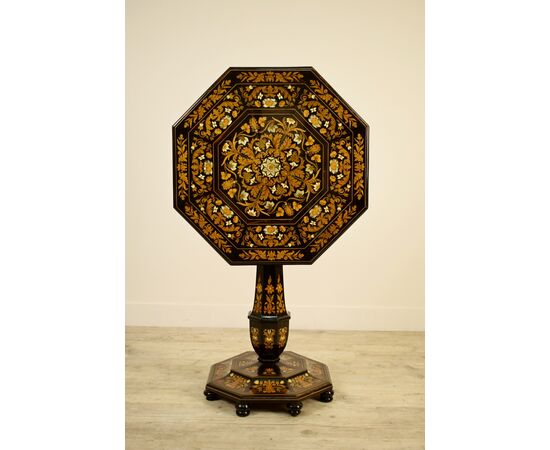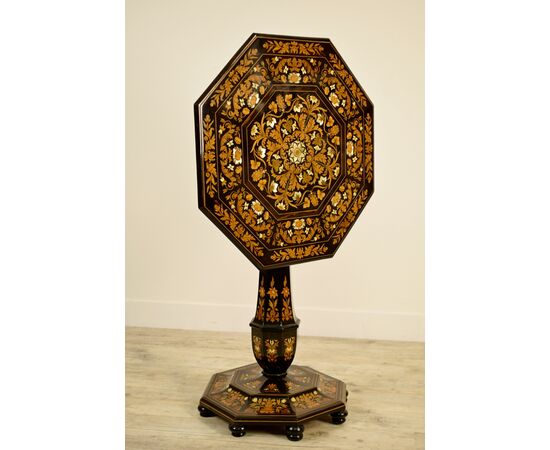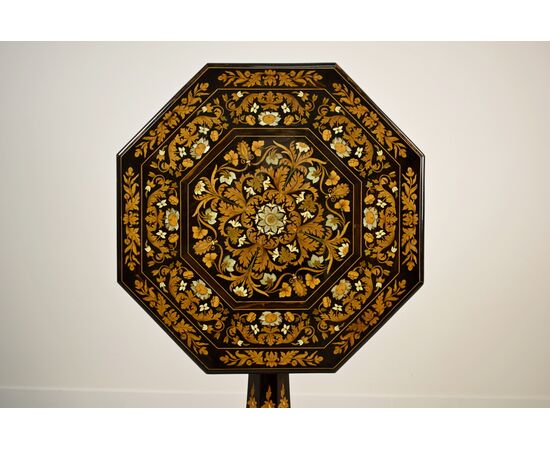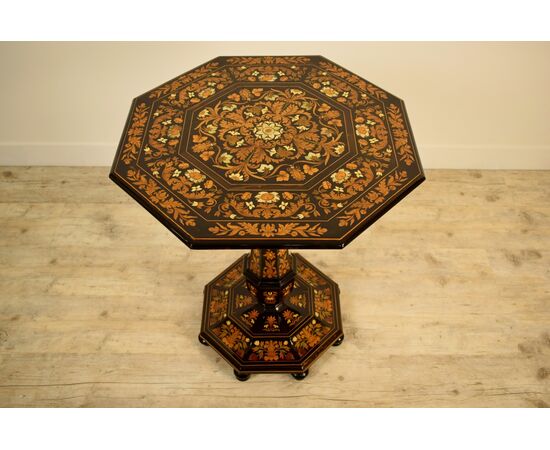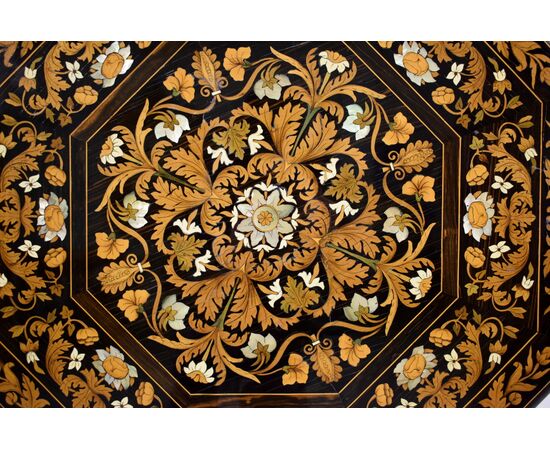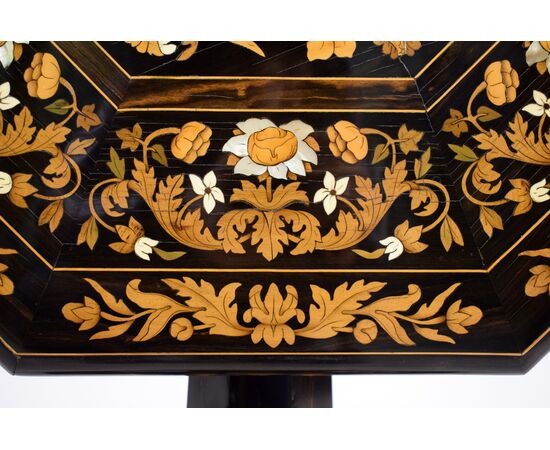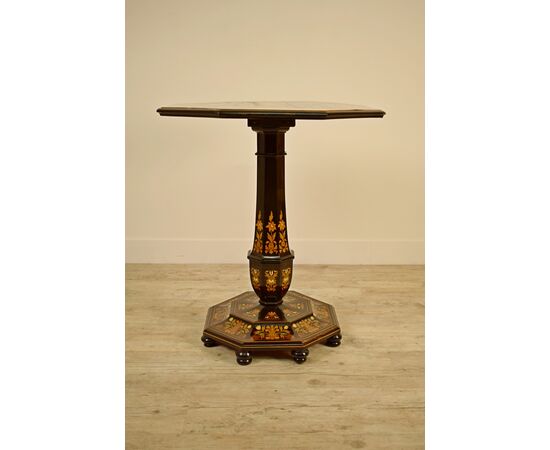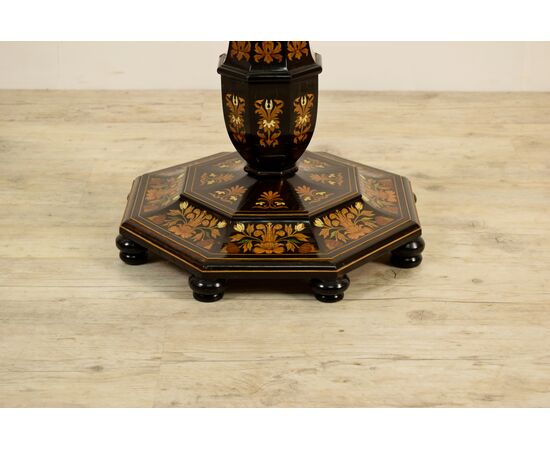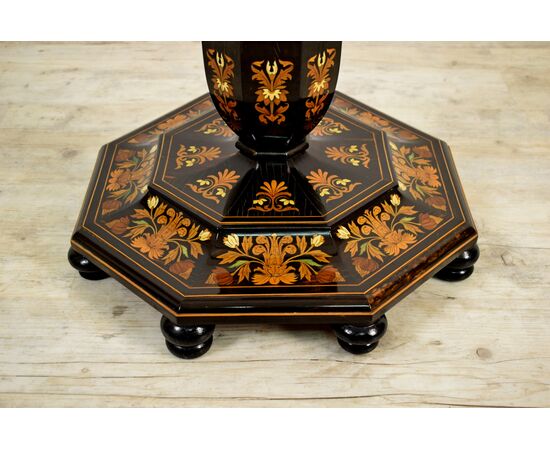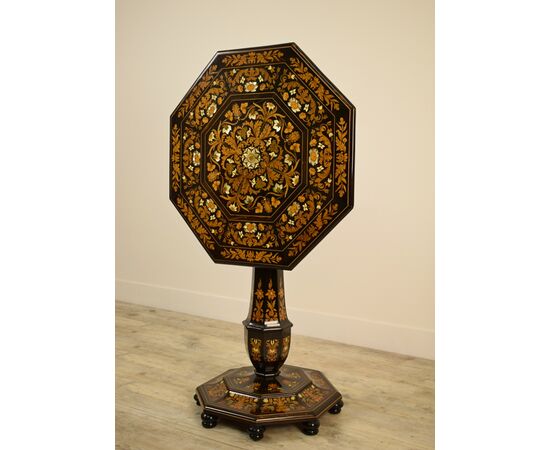Fine center table with octagonal folding top, Luigi and Angiolo Falcini, Florence, mid-19th century
Fine center table with octagonal folding top, Luigi and Angiolo Falcini, Florence, mid-19th century
Dimensions: cm h 78 X L 67
Price: private negotiation
Object accompanied by a certificate of authenticity
This ebonized wood center table features an octagonal folding top, finely inlaid with mother-of-pearl, softwoods, and precious wood species. The inlays form geometric and floral designs. The top consists of three concentric frames within which there are decorations with flowers and plants. At the center, an eight-petaled mother-of-pearl flower is surrounded by decorations that widen and spread towards the octagon. This type of design, of great quality and skillful balance, is very decorative and plays on the chromatic contrast of the inlays.
The table's stem, also inlaid, has an octagonal section: the first part slightly concave, the second part convex towards the base. The base, also octagonal in section and richly inlaid, is structured on two overhanging bands. It rests on rounded feet that lighten the structure, creating a slight detachment from the support surface.
The table is certainly part of the fine cabinet-making production of the Florentine workshop of the Falcini brothers, Luigi (Campi, 1794 - Florence, 1861) and Angiolo (Campi, 1801 - Florence, 1850).
Having moved from the province, they established their workshop in Florence (around 1834-36), which was later run by Luigi's sons, Alessandro and Cesare, also inlayers (records until around 1882).
The two cabinetmakers, originally from a family of woodworkers from Campi Bisenzio, near Florence, moved to the city and opened this important cabinet-making workshop, of which there is information starting from 1834. The workshop had its period of greatest splendor until the death of Luigi in 1861; with less importance, the activity was carried on by the latter's sons at least until 1882. The Falcini brothers' workshop, specialized in inlaid cabinet-making, worked on commission for the Grand Ducal family and the most noble Florentine families. Also in this table, we find the characteristics that unite the works of the workshop, such as the quality of the decoration, the dense but orderly floral inlay, the absolute precision in the cutting and matching of the various materials (light, colored and dyed woods, ivory, mother-of-pearl), often arranged on a black ebony background.
This refined table is suitable for any environment, whether furnished with antique or modern furniture. Very decorative, it is decidedly practical due to its folding top, which can be positioned vertically where more space is needed.
Essential bibliography:
Simone Chiarugi (edited by), Botteghe di Mobilieri in Toscana 1780-1900, vol. II, Florence 1994
Erico Colle, Il mobile dell'Ottocento in Italia. Arredi e decorazioni d'interni dal 1815 al 1900, Milan 2007
Alvar González-Palacios, Il tempio del gusto, il Granducato di Toscana e gli stati settentrionali, Milan 1986

